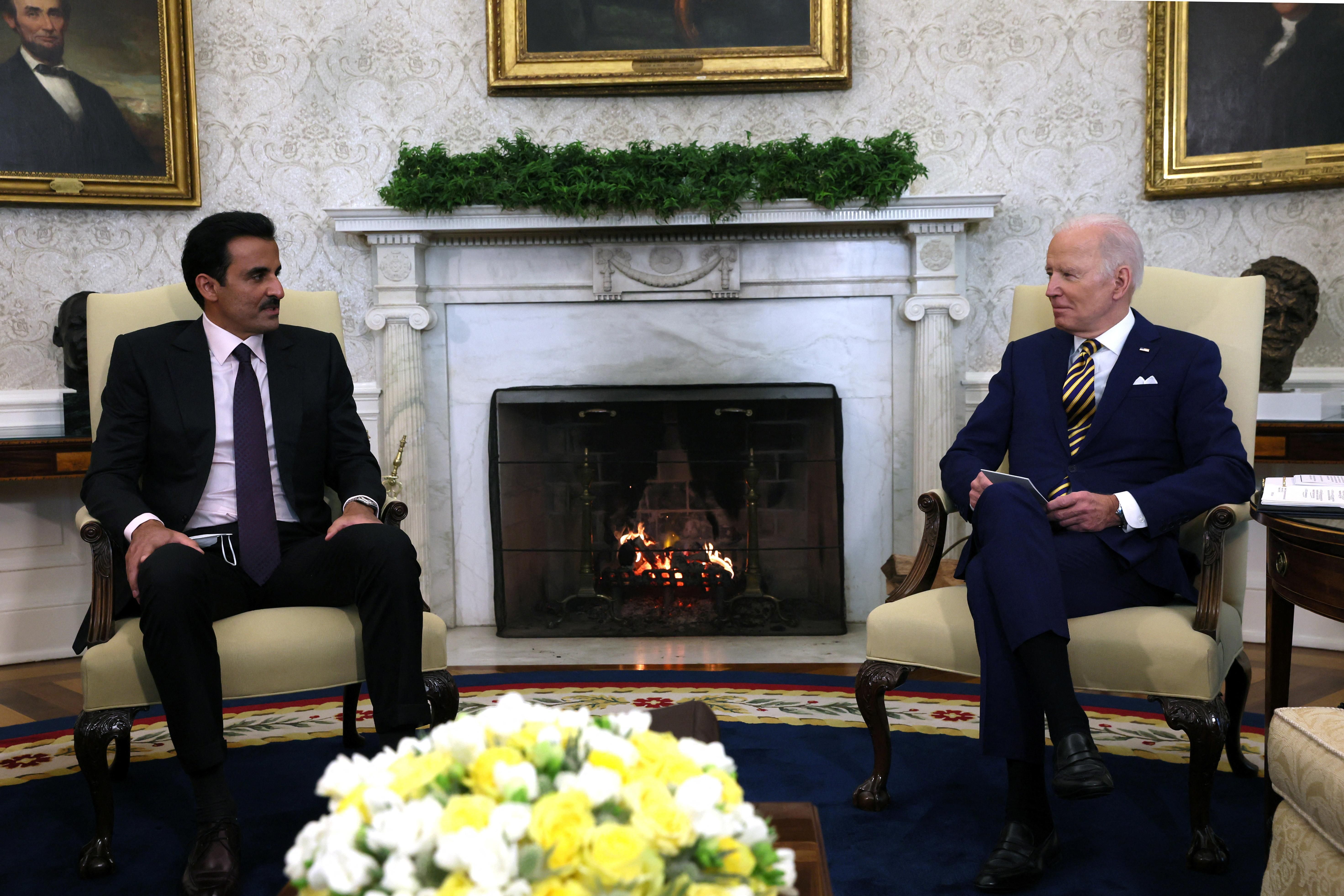On Monday, US President Joe Biden designated Qatar as a major non-NATO ally after hosting its emir at the White House. Sheikh Tamim bin Hamad Al Thani was the first Gulf leader to meet with Biden in person since he became president.
Biden and Tamim discussed how Qatar might supply more of its plentiful natural gas to Europe in case Russia’s President Vladimir Putin decides to turn off the tap in response to possible US/EU sanctions over the Ukraine crisis. That’s a long shot, given that 90 percent of Qatari gas exports are now tied up in long-term contracts — although Doha has ways to to fill a short-term supply gap if needed.
Still, the meeting tells us two things.
First, Biden wants to make it harder for Putin to weaponize Russian gas. A gradual diversification of Europe’s energy supplies could eventually undermine Russia’s ability to blackmail the EU.
Second, the fact that Tamim is publicly considering the idea means Qatar is ready to expand its geopolitical influence beyond the Middle East.
Eurasia Group analyst Sofia Meranto says Qatar has much to gain from “being called on for help by the US to address energy questions in Europe.” It also signals the emirate’s “ability and ambition to play an outsized role in geopolitics.”
It’s a dramatic turn of events for Qatar. The country of just 2.9 million people and the world’s second-largest exporter of liquified natural gas is famous for punching above its weight diplomatically. But doing so comes with risks.
A year ago, Qatar emerged from a four-year blockade imposed by a Saudi-led group of fellow Arab states unhappy with Qatar’s ties to their rival Iran, support for the Muslim Brotherhood, and the negative media coverage they sometimes received from the Doha-based Al-Jazeera TV network. The blockade — which cut off the emirate by air, land, and sea from Bahrain, Egypt, Saudi Arabia, and the UAE — made the Qataris look (further) West for help.
In fact, Qatar, which already hosts the largest US military base in the Middle East, has since become the go-between for Western powers doing business with some of the region’s most dangerous actors.
For example, if you want to talk to the Taliban these days, call Qatar. The militant group now ruling Afghanistan has operated an office in Doha since 2013. The Qataris brokered the Trump administration’s 2020 peace deal with the Taliban in Afghanistan. Following the US withdrawal and the Biden administration’s refusal to formally recognize the new Afghan government, Doha is now America’s de-facto ambassador to the Taliban.
In essence, Qatar helps Western governments talk to the Taliban without having to acknowledge the legitimacy of their brutal regime.
The Qataris also sometimes pass messages between the US and Iran, drawing on the emirate's warm ties with Tehran that other Middle Eastern states have long resented. Qatar supports ongoing talks to return to the 2015 Iran nuclear deal, and Iran wants Doha to help negotiate the release of dual-national Iranian-Americans jailed in Iran.
Now, Qatar sees in the looming Ukraine energy crisis an opportunity to take its soft power onto an even bigger stage. And the timing could not be better for Doha.
This November, Qatar will host the 2022 soccer World Cup, the most-watched sports competition in the world after the Summer Olympics. Will Putin attend?
